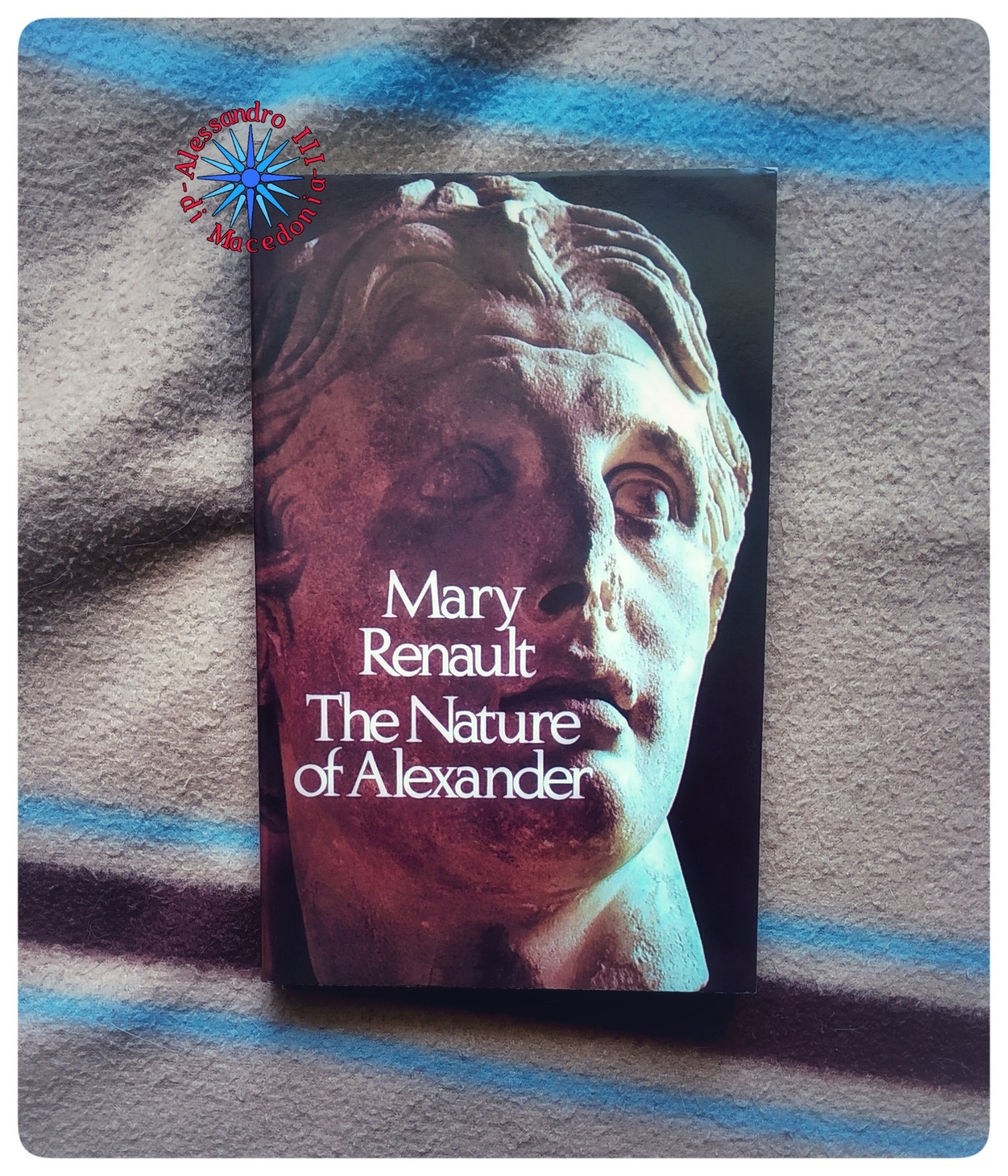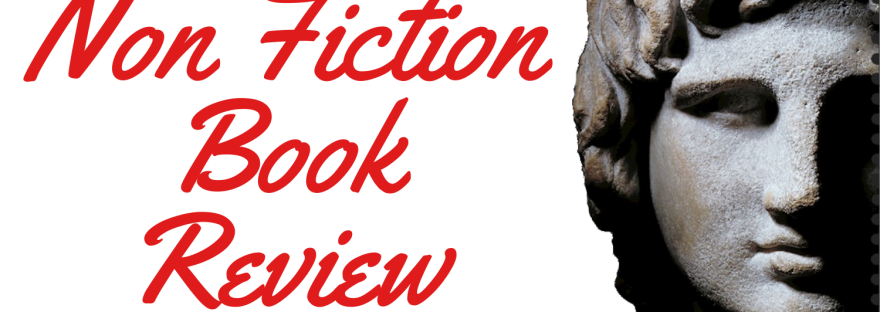Recensione in italiano: QUI – Quotes: QUI
Good morning, thank you for being on Alessandro III di Macedonia! Today I am talking about:
The Nature of Alexander
by Mary Renault
Pantheon Books, 1975 (2002)
ISBN: 978-0394738253, 276 pages

The acclaimed biography of Alexander the Great by Mary Renault, the author of Fire from Heaven and The Persian Boy, two best-selling novels about Alexander.
Mary Renault wrote more than a dozen novels; has had her work adapted for radio, stage, and screeen; and has been the subject of documentaries and biographies. She is as widely known for her forthright treatment of gay relationships as well as her historical restructions of ancient Greece. She was born in London and educated at Oxford. She then trained as a nurse, where she met her lifelong partner, Julie Mullard. After World War II, she and Mullard settled in South Africa and traveled considerably in Africa and Greece. It was at this time that she began writing her historical novels, including The King Must Die, The Last of the Wine, and The Persian Boy. The biography The Nature of Alexander is one of her only nonfiction books. She died in Cape Town in 1983.

Reading time: from 7 to 17 May 2021.

The fact that this book has not – yet – been translated into Italian leaves me perplexed. Mary Renault with the trilogy about Alexander the Great was a great success abroad, a success that in Italy was limited only to the second novel of the trilogy, The Persian Boy published more than twenty years ago and relegated (limiting it) to gay fiction.
Renault in this essay tells us about Alexander the Great, his life, but first she also talks about his legend, the story of his sarcophagus, the story of Philip. In fact Images, the first introductory chapter of The Nature of Alexander, is interesting because it talks about what happened after Alexander’s death and all the legends that were created around him, also explaining how the various ideologies and history influenced them. She explains to us which are the most important authors and texts on Alexander. From the second chapter, Macedon, her narration moves to Philip’s Macedonia and gradually the chapters will be named after the places where the story takes place. The author has no doubts about Philip’s murderer: it was Attalus who had Pausanias raped by slaves to make him seek revenge later on.
What I really liked about Renault is that she writes an essay with the features of the novel, let me explain better immediately: she cites the authors and some of their passages by inserting them in the text, in an organic way, without breaking the conversation and without inserting footnotes. . Furthermore, she doesn’t burden the story with useless speculations, she is always clear, direct and simple. An essay is usually full of footnotes or bibliographic references but not this: Renault names the authors in the text as much as she wants to explain but she limits herself to a simple but essential bibliography to deepen the readings. Regarding the bibliography, is very beautiful because it also shows us which were the relevant works in the life and time of Alexander and those that he knew that surely or very probably influenced him.
I gave five stars to the book because in a book of less than 300 pages, Renault manages to insert a lot of information, anecdotes and curiosities that are difficult to find all mentioned in a single book: I discovered them myself by reading different texts but here we find many of them, which denotes the deep knowledge of the author and her excellent work with this book because in a few lines it contains a lot of information. The text is flowing and it’s nice that the author occasionally lets herself go to some personal consideration, as in the case of Hephaestion that if he had lived more maybe we would have had the opportunity to read his memories too. Considerations of this kind are like those that I occasionally do too while reading and make me understand how much Renault cared about Alexander, as a fan of him.
I liked it very much: the description of the destruction of Thebes and its background; how Renault tells us about the episode narrated by Curtius Rufus on the imitatio Achillis on Batis’ death is the fruit of Athenian propaganda; how he talks about the episode of the Gordian Knot. The chapter on India is also done very well and is not hasty, moreover it states that Arrian most likely used Nearchus for the descriptive passages and Ptolemy for those on wars. Renault doesn’t even tread the hand on Alexander’s relationship with wine and drinking, but she analyzes in a meticulous and lucid way in which occasions Alexander consumed wine. The author analyzes the figure of Bagoas a little more than usual but is not a point against it indeed, and it’s understandable since she has written a lot about him. The story of the killing of Cleitus the Black is also beautiful and detailed. Even analyzing the death of the Macedonian, Renault is lucid and considers everything, even the Alexander Romance: according to her, water was very important, dirty full of germs of many diseases and a figure that will remain ambiguous in this matter is that of Iolaus who may have intentionally poisoned Alexander not with the poison in the mule’s hoof but with “simple” wine that would have the effect as a poison for Alexander’s state. The Renault’s Postscript also explains what happened to Roxane, to Alexander IV, to Olympias and to Sisygambis: beautiful as it points out that she died a few days after Alexander, allowing herself to starve from pain.
I’m very sorry that this book hasn’t been translated into Italian yet. Never say never but the author hasn’t been properly valued in Italy, at least as regards her Alexander’s works. It’s a shame because is with books like this, that is written well, simple, smooth and documented, which could make Alexander and the Diadochi even more passionate people but before being read and loved they must be translated and published in Italian, a lack that unfortunately I can’t explain myself and forgive the Italian publishers. Read it in English if you can because you won’t regret it!
Thank you and have a good day,






1 pensiero su “Review: “The Nature of Alexander” by Mary Renault”